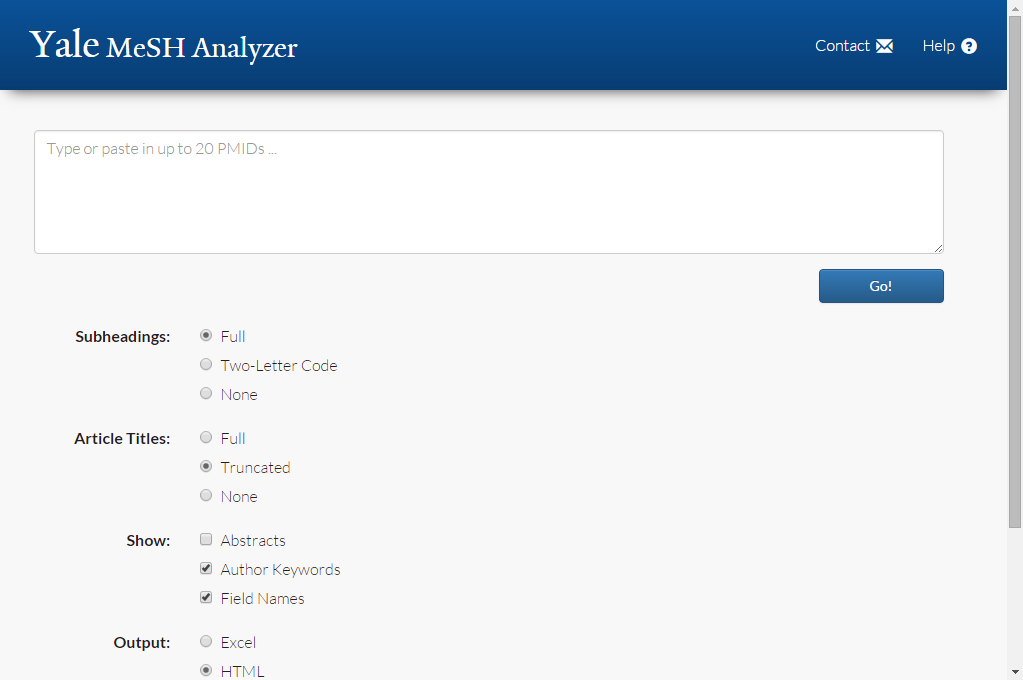Two of our librarians, Lei Wang and Holly Grossetta Nardini, have developed a web-based tool to simplify search design and refinement for major, comprehensive database searches. This tool was released at NAHSL’15 in Providence this past October and is primarily for those involved in comprehensive database searching and systematic review research teams.
At Yale, based on work by Jan Glover, we have a "best practice" for major searches: creating a MeSH analysis grid. A MeSH analysis grid helps us identify problems in a search strategy by showing how key articles are indexed in the MEDLINE database in an easy-to-scan tabular format. Creating a MeSH analysis grid manually is useful for search validation but time-consuming.
The Yale MeSH Analyzer removes the tediousness from the process by automatically retrieving the article metadata and formatting and generating a grid. Using the tool is easy: simply paste a list of up to 20 PMIDs into the text box and click "Go.” You can delimit the PMIDs in any way you like, even pasting in a paragraph that includes text. The Analyzer will scan for PMIDs and attempt to retrieve article data from PubMed, creating a grid in either HTML or Excel for you to manipulate. There are other customizable options, and you can install a browser button on your toolbar to do an analysis in one step.
You can then easily scan the grid and identify appropriate MesH terms, term variants, indexing consistency, and the reasons why some articles are retrieved and others are not, a common frustration for expert searchers. This inevitably leads to fresh iterations of the search strategy to include new terms. In addition to MeSH terms, author-assigned keywords, article titles, and abstracts can be included in the analysis display.
We hope that this tool helps you refine your searches and saves you time. We would love to hear your feedback.

